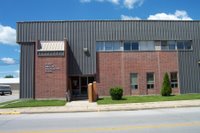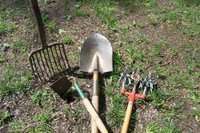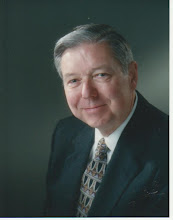Historical Sketch of Church Recreation

THE BEGINNINGS of organized recreation programs sponsored by churches in the United States occurred during the 20th century. Prior to the first two decades of the 1900's, most - if not all - religious denominations and local churches viewed play and recreation as sinful and a tool of the devil. Even as late as the 40s and 50s, some denominations and churches had not changed their earlier Puritanical beliefs that recreation should not be allowed in the church, nor sponsored by the church. Still today, as we have entered the 21st century, there are a few religious groups that hold strong convictions against church-sponsored recreation.
Concepts and beliefs about play and recreation in the church have changed through the years. Various conceptual stages regarding church recreation have been observed, including the following: (1) objection and rejection; (2) resistance; (3) indifference; (4) tolerance; (5) passive acceptance; (6) active acceptance; (7) genuine belief-in; and (8) necessity. The general and overall beliefs of the members of some churches have passed through all of these stages; other churches are stuck on one way of thinking - and have been for years! Some churches object to the idea of having church recreation; other churches see recreation as an important vehicle in carrying out their mission and ministry. The concepts and beliefs of many other churches are somewhere between these points of view. It is interesting to note, however, that for the past several years there has been a growing trend toward more acceptance of recreation as one of the ministering arms of the church.
Several denominations have encouraged their churches to establish and continue ongoing programs of church recreation and leisure ministries. Some denominations have seen their role as enablers for church leaders by suggesting methods, as well as providing materials and training, in order for them to assist their churches in ministering to the needs of the total person: mentally, physically, spiritually, and socially.
Catholic churches have been supporters of recreation, although many of their programs are carried out through their parochial schools. The Church of the Brethren has also promoted the idea of church recreation. Some Lutheran churches have used recreation as a ministry. The Methodist denomination has led their churches to include leisure ministries. Presbyterians have also been actively involved in providing recreation for themselves and for others in their communities. Perhaps, however, Southern Baptists have been the most active, as one of the main-line Christian denominations, in promoting church recreation as a ministry.
The history of church recreation for Southern Baptists goes back to 1922. Dr. T. B. Maston, a professor of Christian ethics at Southwestern Baptist Seminary in Ft. Worth, Texas, became the first voice and seed-planter when he wrote and circulated his thoughts concerning church recreation. His work was finally published in 1937 and was titled A Handbook for Church Recreation Leaders. In 1925, the first recreation program was started by a local church: the College Hills Baptist Church in Ft. Worth. In 1939 at the annual meeting of the Southern Baptist Convention held in Oklahoma City, Dr. Chester Swor was promoting the idea of church recreation in the hallways and exhibit space of the convention center. He was quickly branded as a "young liberal." Later, however, at the Baptists' annual meeting in Memphis, Tennessee in 1948, Swor was asked to be a last-minute replacement for an invited speaker who was unable to be present. Swor, a professor at Mississippi College in Clinton was glad to be a substitute! He brought a stirring address; he challenged the Convention's leaders to develop a department to aid churches in establishing recreation ministries. His speech brought a standing ovation from the huge crowd of listeners!
In 1954, the Sunday School Board of the Southern Baptist Convention took the action that Swor had requested in the meeting six years earlier, and the Church Recreation Service was born. From then to the present day, the ministry of church recreation has been promoted by the Baptists on a national and world-wide scale by numerous dedicated leaders and staff members. Principal leaders who have served as department directors have included Agnes Pylant (1954-1962); Bob Boyd (1962-1971); Ray Conner (1971-1992); Tommy Yessick (1992-1996); and John Garner (1996-present).
Church recreation is alive and well in the United States today! Several denominations - and thousands of churches - are utilizing recreation in expanded ministries. And, because of the work and influence of missionaries, recreation is also being used to reach people in other countries with the message of God's love.
__________
-- The recreation building of First Baptist Church, Bolivar, Missouri is shown above. The facility was opened in 1975.



